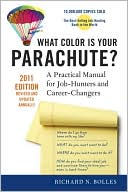Make Money Teaching Online: How to Land Your First Academic Job, Build Credibility, and Earn a Six-Figure Salary
Find out how the authors earn $175,000-a-year each, teaching online—and why they love it!\ "If you love to teach and understand the power and exploding force of online education, you will want to read this book."\ —Dr. Claudia Santin President, Northcentral University\ "At a time when online teaching is becoming a popular vocation, the authors provide important insight into what it really takes to be successful in an online teaching career."\ —Maria Puzziferro, PhDDirector of Continuing...
Search in google:
Two adjunct professors explain how theydiscovered great pay, flexible hours, and rewarding workYou may not consider teaching a very exciting profession, or at least not a lucrative one. But what if you could teach from home—or anywhere in the world—and earn a six-figure salary doing it? Tens of thousands of people make a great living teaching online courses from wherever they happen to be. And the more courses they teach, the more money they can make.Online universities are sprouting up around the country and revolutionizing the way we teach and learn, and enterprising educators are cashing in. Traditional universities are offering more courses online—and they need growing numbers of adjunct faculty to teach them. In Make Money Teaching Online, online educators Danielle Babb and Jim Mirabella explain how to get the education you need, find high-paying teaching jobs, and increase workloads and income.Today, more than eighty percent of learners have taken at least one online course, and those numbers continue to rise. But rather than hire tenure-track professors, institutions are increasingly looking for part-time, remote educators to teach online courses. By teaching multiple classes, you can make much more money than most full-time tenured professors.Step by step, the authors show you how to:Find legitimate online universities and opportunitiesDiscover what universities look for in online educatorsManage and master the technology you need to teachMaintain professional relationships and grow your business like a consultancyBalance your workload to minimize effort and maximize incomeAnd much moreMake Money Teaching Online is the only guide you need to get started, find great teaching jobs, and earn more than you thought possible. If you want a personally and monetarily rewarding career in this revolutionary new industry, get online and get teaching.
Acknowledgments. Chapter 1—Introduction to Online Teaching. Our Experiences. A Message from Dani. A Message from Jim. Substantial Opportunity Awaits. Can I Do This? But I’ve Never Taught Online Before! Who Can Teach? Doctoral Degrees. Master’s Degrees. Bachelor’s Degrees. Former Military. Professionals. Homemakers or Stay-at-Home Parents. Retired Individuals. Physically Disabled. Chapter 2—Online Schools: Are They for Real? Is Online Education for Real? Are Online Schools Less Rigorous? Can a Student Really Learn College-Level Material Online? Can a Professor Really Teach This Way? Online Degree Legitimacy in Corporate America. Can You Get Hired to Teach with Just an Online Degree? Are All Online Schools Accredited? What Kinds of Colleges Are Offering Online Courses? Diploma Mills and Scams. Red Flags for Bad Eggs. Why Do People Teach Online? So,What’s the Catch? Chapter 3—Preparing Yourself for Teaching Opportunities. Getting Your Master’s Degree. Enrollment. Getting Your Doctoral Degree. Completion of Doctoral Programs. Doctor of Philosophy (PhD). Doctor of Business Administration (DBA). Doctor of Education (EdD). Chapter 4—Types of Online Teaching Jobs. Experience—Needed or Not? Why Do Schools Want Adjuncts? What Types of Positions Are Available Online? Requirements of Various Programs. Online High Schools. What Do You Need to Begin? Upsides and Downsides to Adjunct Life. What Is Required of Adjuncts at Most Schools? Time Is Money: Balancing the Load and Evaluating Your Real Rate of Return. How Many Schools Should You Work For? Personality, Strengths, and Marketing Yourself. Chapter 5—How Much Can I Earn? What Influences Your Pay? What Can I Expect to Make for My Work? How to Make Extra Money. Chapter 6—The Hunt: Finding Your First Job. Locating Schools. Finding Programs to Teach In. Hierarchy’s Role in Finding Your Contact. Human Resources. Direct Contacts. Using Direct Contacts. Preparing Documents for Fast Submission. Sample Documents. Chapter 7—The Interview:What Universities Look For. Interview Processes of Online Schools. What to Expect:What Do Deans Want? On the Inside Track: From the Mouth of a Dean. Addressing Your Strengths. What to Do with Limited Experience. Proving Responsiveness. Odd Requests and How to Handle Them. Chapter 8—Sealing the Deal,Training, and Your First Class. What Next? Salary or Contract Negotiation. What to Expect. The Training Program. Types of Training. Communicating with Your Trainer. Length of Training Process. Proving Yourself to the Trainers and Your Chairperson. Prepping for Your First Class. Member. Types of Systems—Knowing the Difference. Time Matrix—Pay versus Workload. Three University Situations. Communication Is Key. Continuously Do What Comes Easily and What You’re Good At. Using E-Mail—Not the Phone! Life as an Adjunct—Balancing Work and Home. Chapter 10—Must-Have Technologies. Internet Access. Computers. Backups. Organization Systems and PDAs. Newsgroup Software. Cellular Phones. Voice-Over Internet Protocol (VoIP). Unified Messaging. Comfortable and Ergonomic Workstation Setups. Conference Phones. Instant Messaging. Fax—Electronic and Traditional. PDF Converters. Scanners. Printers. Backup Internet Providers. Uninterruptible Power Supply (UPS). Wireless at Home. Virus Protection. Antispam. E-Mail Accounts with In-Box High Limits. Professional Web Sites. Antispyware Software. Office Suites. Backup Hard Drives. Password Storage. Software and Keys. Minimum School Requirements Example. Making Your Life Easier and the Students Happier. Setting Up a System to Support Flexibility and Travel. Chapter 11—Maintaining Relationships and Growing Your Business. Personal Motivation. Keys to Successful Relationships in a Virtual World. Varying Demands by University. Keeping Everyone Happy. Getting Organized. Additional Work Opportunities within the Schools You Work For. Lessons Learned. Adding Opportunities at New Universities. Managing Your Cash Flow:The Ups and Downs of Contract Work. Not All Teaching Opportunities Are Created Equal. Referring Others. Go for It! Sources. Index.








